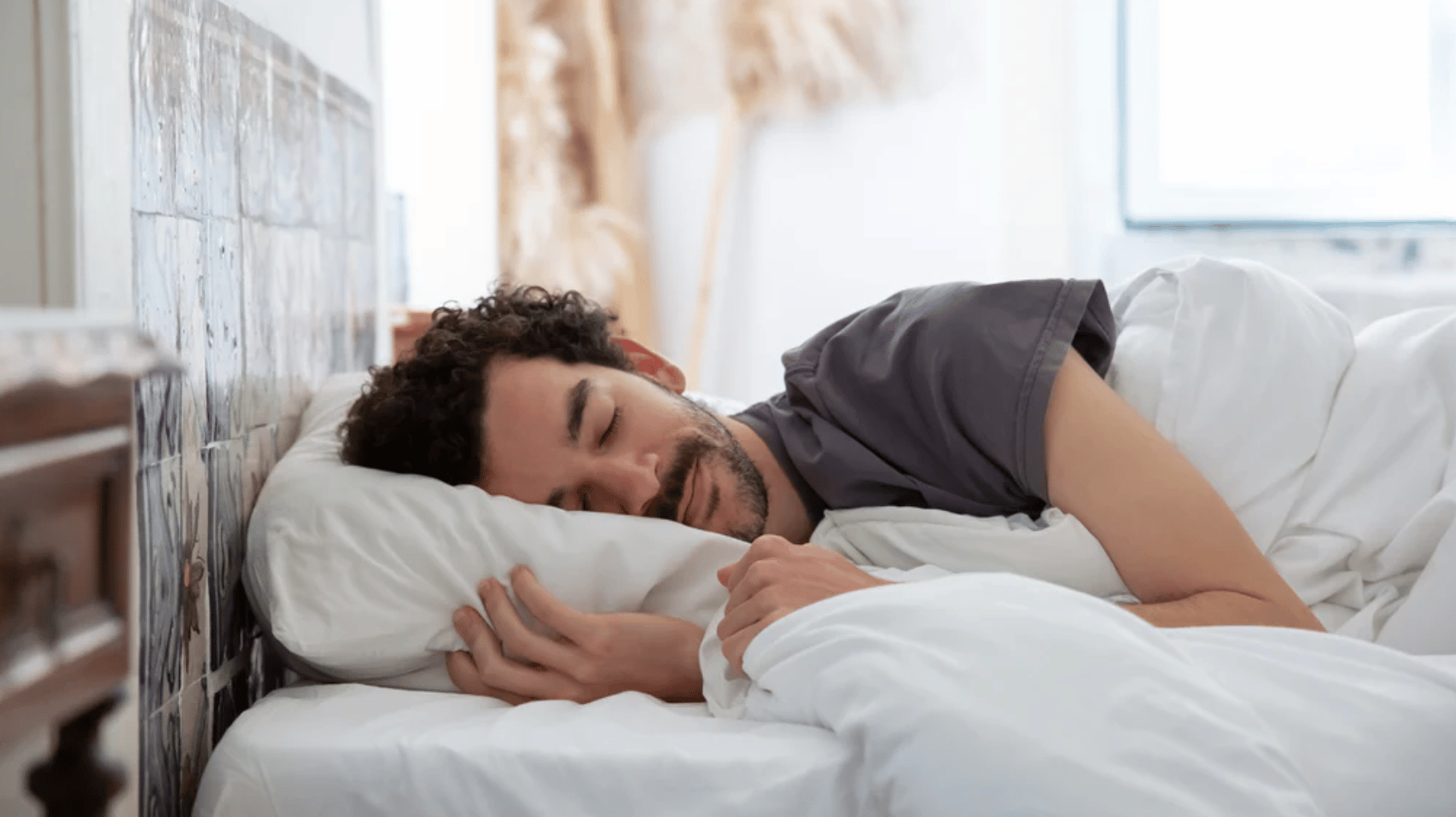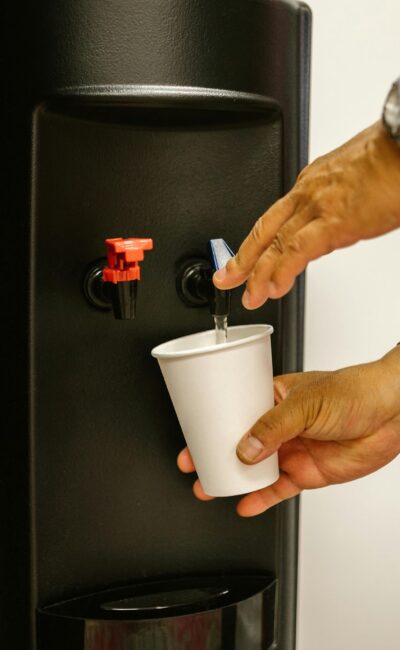Most water loss happens through urination, but the body also loses fluid through the skin and from respiration, which is known as insensible water loss. Over a full day, about 300-400 milliliters of water are lost from breathing. A large component of that loss happens during sleep, although the amount can depend on whether a person breathes primarily through their mouth or nose.
During sleep, there is no fluid intake to make up for insensible water loss, which is why it is believed that the body’s internal clock, or circadian rhythm, kicks in to manage a balanced level of hydration. In the latter part of sleep, circadian signals cause the body to produce a hormone called vasopressin that promotes water retention.
If sleep is interrupted or cut short, though, this natural process may be disrupted, interfering with the hormonal signals for water retention. As a result, sleep deprivation may directly contribute to dehydration.
It’s normal for the body to have a net loss in water during the night, but there are steps that you can take to keep that from resulting in dehydration:
Focus On Good Sleep
Getting a sufficient amount of high-quality sleep is an important part of preventing dehydration. The body goes through multiple complex processes during sleep that enable recovery for overall health. By sleeping the recommended amount, you allow these processes to unfold and let your circadian rhythm better manage your body’s fluid levels.
Sleeping well often starts by making sleep a priority. A common principle of sleep hygiene is having a consistent sleep schedule that provides enough time for you to get the sleep that you need. Limiting late-night use of electronic devices, developing a relaxing bedtime routine, and using a comfortable mattress are other examples of positive sleep hygiene that can help you rest well.
Maintain Hydration Through the Day
If you frequently find yourself thirsty at night, it might mean that you aren’t staying hydrated during the day. By maintaining hydration throughout the day, you have less to worry about when bedtime rolls around. Tips for healthy hydration include:
- Sipping fluids regularly, including by setting a schedule reminder if you have a hard time remembering to drink water.
- Using a water bottle to have a drink easily accessible and to track how much water you’ve consumed.
- Drinking water as your primary beverage and being careful about the intake of sugary drinks like soda or juice as well as caffeinated and alcoholic drinks.
- Eating a balanced diet with plenty of fruits and vegetables, which have higher moisture content and can increase your water intake from food.
Find a Comfortable Bedroom Temperature
Sweating can cause water loss at night, and if your bedroom is too warm or you tend to sleep hot, heavy sweating can make it more likely that you’ll wake up dehydrated.
To avoid this, try to make sure that you can easily maintain a comfortable temperature through the night. Most experts recommend keeping your bedroom thermostat on the cooler side. You can also wear light, loose clothing and use breathable bedding that keeps you from overheating.
Stay Hydrated Without Frequent Urination at Night
A common challenge is knowing how to stay hydrated during sleep without having to frequently wake up at night to go to the bathroom. Several tips can help you avoid both dehydration and excess trips to the bathroom:
- Reduce fluid consumption in the hour or two before bed. While it’s fine to sip water, try not to take in large quantities of any beverage in the lead-up to bedtime.
- Limit alcohol and caffeine at night. Both of these can have a diuretic effect, making you need to pee during the night. In addition, alcohol and caffeine can interfere with your normal sleep cycle and sleep quality.
- Elevate your legs in the evening. Some nighttime urination happens because your body reabsorbs water from your legs once you’re lying down. If you put your legs up a few hours before bed, you can allow this process to take place without causing sleep interruptions.
- Pee before you go to bed. Try to empty your bladder as part of your routine before bed so you’re less likely to feel a strong need to urinate during the night.
In some cases, it may be unavoidable that you’ll have to wake up at least once in the night to pee. This is normal for many people and becomes more common with aging and some medical conditions or medications.
Talk With a Doctor
If you have concerns about regular dehydration, poor sleep, or frequent nighttime trips to the bathroom, talk with your doctor. Reviewing your situation can help determine if any underlying medical condition is present that may explain your symptoms. Your doctor can also make specific recommendations for your diet and daily water consumption.
Now go practice your sleep hygiene and catch some zzz’s! 💤
—
Sources
-
MedlinePlus: National Library of Medicine (US). (2016, April 15). Dehydration. Retrieved January 4, 2021, fromhttps://medlineplus.gov/dehydration.html
-
Rosinger, A. Y., Chang, A. M., Buxton, O. M., Li, J., Wu, S., & Gao, X. (2019). Short sleep duration is associated with inadequate hydration: cross-cultural evidence from US and Chinese adults. Sleep, 42(2), 10.1093/sleep/zsy210.https://doi.org/10.1093/sleep/zsy210
-
Weissenberg S. (2005). Insensible water loss during sleep: a theoretical exercise. Advances in physiology education, 29(4), 213–215.https://doi.org/10.1152/advan.00028.2005
-
Dmitrieva, N. I., & Burg, M. B. (2011). Increased insensible water loss contributes to aging related dehydration. PloS one, 6(5), e20691.https://doi.org/10.1371/journal.pone.0020691
-
Colwell C. S. (2010). Preventing dehydration during sleep. Nature neuroscience, 13(4), 403–404.https://doi.org/10.1038/nn0410-403




